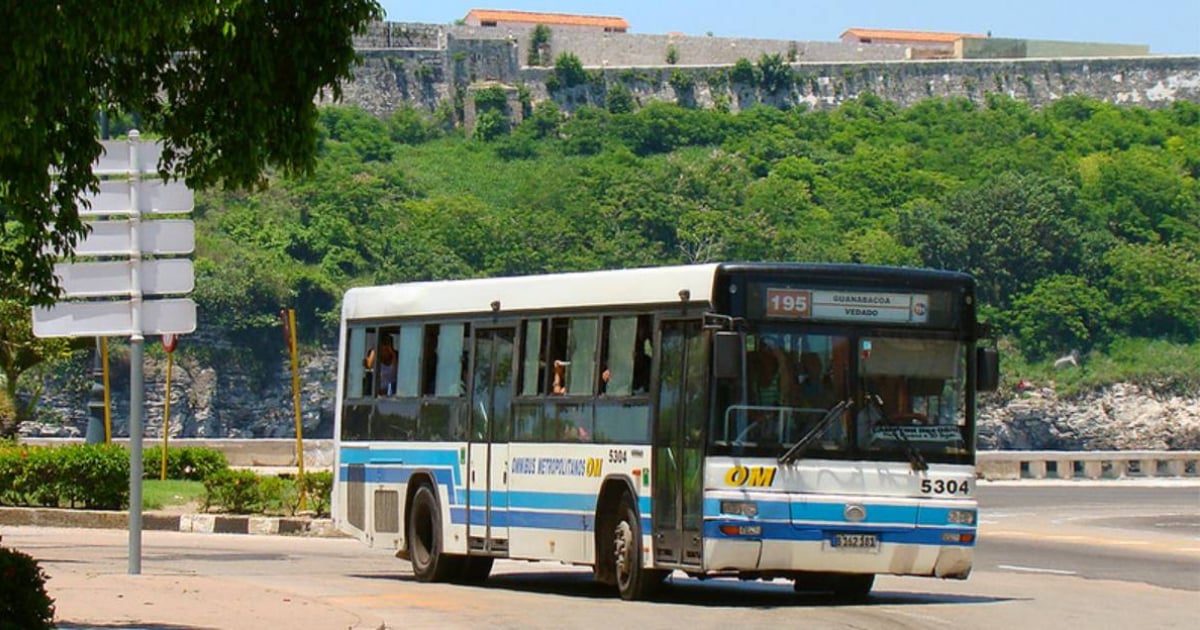
Related videos:
In Cuba, the term "guagua" is used to refer to motor vehicles that provide passenger transportation services. It is believed to be a 100% Cuban word, with its usage dating back to the 19th century, but there are various accounts regarding its origin.
One of them refers to English and suggests that "guagua" is a phonetic adaptation of the word "waggon," which means wagon, referring to the carriages used in the late 18th and early 19th centuries to transport passengers in horse-drawn vehicles.
However, public transportation in Cuba began to develop in 1839, in Havana. These horse-drawn omnibuses were soon replaced by the tramway.
Another of the most common theories about the origin of the word “guagua” suggests it comes from the name of an American company, “Wa & Wa Co. Inc.” (Washington, Walton, and Company Incorporated).
It is believed that this was the first factory to export buses to Cuba. However, as D. Jácome indicates on the Facebook page Cuba en la Memoria, the term "guagua" was already used to refer to public transportation long before this company arrived on the island.
In the "Provincial Dictionary of Cuban Voices" by D. Esteban Pichardo, published in 1849, there is a definition of "guagua" that confirms its use to refer to a type of vehicle used in Havana to travel to the city's suburbs at a very affordable price.
This shows that the term "guagua" was already commonly used to refer to a means of transportation in Cuba since the 19th century.
"Guagua" is also associated with free transportation
Other publications from the colonial period mention the use of the word "guagua" in relation to free transportation. This reference points to Latin America, particularly to Quechua communities where the term "wáwa" means child.
In Peru, there was a time when it was mandated that public shows and transportation be free for children under six years old. If an adult did not pay, it was said that they were going "de guagua," meaning they were traveling for free. This expression gradually spread to other countries.
During that time in Cuba, workers in civil and military construction often walked from their homes to their workplaces because their wages did not allow them to afford transportation.
It seems that the government issued an official order mandating that no fare be charged. They informed the owners of public transportation companies that workers on military defense projects were required to be "transported for free," meaning at no cost.
It is believed that since then, the people of Havana adopted this term for public transportation, and little by little, it became entrenched in the colloquial language of Cubans.
The Cuban bus made it all the way to the Canary Islands
The term "guagua" to refer to public transportation became established among the emigrants from the Canary Islands in Cuba, and upon their return to their homeland, they brought it with them.
The Canary Academy of Language acknowledges that this word has Cuban origins, as the term "guagua" was not recorded in the vocabularies of Spanish territory during the first two decades of the 20th century.
Although there are various theories regarding the origin of the word "guagua," historical evidence supports its use and popularity in Cuba since the 19th century, as well as its deep-rooted connection to both Cuban and Canary Island culture, where it is used to refer to buses.
Regarding public transportation, we Cubans have created our own bus models, which have had various names such as the P (1, 2, 3, 4, 5...), the Camello, the Guarandinga, or the Charangón. However, despite this diversity, the term that is generally used is "guagua."
It’s up to the reader to choose what they believe is the most appropriate origin for this term, although I think it’s important to remember that even the Royal Spanish Academy has not been able to provide a definitive answer to this.
Frequently Asked Questions about the Use of the Word "Guagua" in Cuba
What is the origin of the word "guagua" in Cuba?
The origin of the word "guagua" in Cuba is not entirely clear, but one of the most common theories suggests that it comes from a phonetic adaptation of the English word "waggon." Another theory indicates that it could derive from the name of an American company, "Wa & Wa Co. Inc.," which exported buses to Cuba. Despite these theories, the use of the term "guagua" to refer to public transport in Cuba has been documented since the 19th century.
Why is the word "guagua" associated with free transportation in Cuba?
The word "guagua" has been associated with free transportation because, historically, there were periods when free transport was allowed for certain groups of people, such as military workers. This use of the word to indicate gratuity is also found in other regions of Latin America, such as in Quechua communities where "wáwa" means child, referring to free transport for minors.
How did the term "guagua" come to be used in the Canary Islands?
The term "guagua" arrived in the Canary Islands through Canarian emigrants who returned from Cuba. These emigrants brought with them the use of the word to refer to buses, and the Canarian Academy of Language recognizes the term as of Cuban origin, as it was not recorded in the vocabularies of the Spanish territory at the beginning of the 20th century.
Filed under: